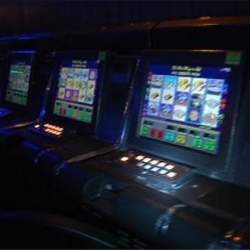Eight-liners continue to flourish in South Texas, despite concerns about legality. The problem with gaming halls which contain eight-liners is the ability of owners to offer cash prizes, when the law does not allow such gambling.
The typical eight-liner venue is South Texas is a small repurposed building used for maybe 2 dozen gaming machines. On the side are prizes, which are paid in lieu of cash. In some cases, the 8-liner machines are found in convenience stores, where the merchandize is more easily stored.
San Benito’s Experience
In the town of San Benito, Texas, dozens of such venues once were located. These days, rows of the eight-liner palaces are now closed and dilapidated. Local law enforcement raided the operations and shut them down over the last few years, as they did not follow state laws in Texas.
A reporter for Express News says some of those gaming operations still exist, but they exist underground in Cameron County. In the unlicensed and illegal gaming business, the eight-liner casinos pay cash.
County Fees Make It Legal
The same can’t be said of the operations 100 miles away in Starr County. In the county, eight-liner businesses pay a $500 yearly fee to have the right to operate such games. Starr County officials instituted such a fee to raise an estimate $1.7 million a year. The county was running a budget deficit and needed the additional funds.
At those businesses, local residents sit in cramped quarters gambling on the slot machines. Armed guards stand nearby maintaining order. These are lucrative businesses, but local law enforcement is concerned that illegal activities could be taking place there and it would be hard to police.
Luis Saenz’s Opinion
Slots palaces like the ones in Starr County are thought to generate hundreds of millions of dollars in gambling action each year. With so much money gambled, it is not easy to regulate the activity. Gambling-for-cash could take place and law enforcement would be slow to respond.
Luis V. Saenz, district attorney of Cameron County, said that the officials in Starr County are going to regret their decision to allow such gambling. Saenz said, “You cannot be a legal casino and make money. Unfortunately, (Starr County) has chosen to look the other way, and that’s a mistake.”
How Maquinitas Work
In Starr County, gaming locations called “maquinitas” operate as many as 100 machines. These operations are legal and licensed, so long as the owners do not pay out winnings in cash. Instead, they offer household appliances like coffee pots and toaster ovens, or even grocery items.
Despite the lucrative nature of the maquinitas, both for the owners and the local counties, Saenz and others say they bring corruption into the area. With so much money changing hands and with little oversight, transparency, or auditing, such operations became a focus of money laundering and other corruption. The maquinitas also contribute to problem gambling, while they have no requirement to supply resources for gaming addicts.
Kevin Benson’s Warning
Kevin W. Benson, who works for Homeland Security Investigations in Cameron County as a assistant special agent for investigations, says that the maquinitas are a financial slippery slope. Benson says, “When you start seeing a huge cash industry like this with very little accounting, there’s a tremendous amount of flexibility where that money can flow.”
An investigator with HSI estimated in 2011 that 9000 slot machines were operating in Cameron County. Each of those machines was thought to collect $100 a night for a total of $900,000 flowing out of gamblers’ hands each night.
$5.4 Billion in Revenues
Back in 2004, two University of Texas professors studied eight-liners and estimated they generated $5.4 billion a year. For a perspective, Atlantic City casinos were thought to have generated $5.4 billion in 2006, the peak year of the AC casino economy. Texas maquinitas were generating more than Atlantic City–and all with remarkably little oversight.
To combat such activity, much of which had veered over into illegal gambling, money laundering, and organized crime activities, the HSI launched a raid in 2013 called Operation Bishop. The idea was to root out casino gambling and other corruption.
Operation Bishop included 45 different gaming raids. Throughout those 45 raids, a total of 1200 eight-liner slot machines and 1500 computers with illegal online slots were collected. Despite the success of the operation, it was a trifling affair in the wider course of things in Texas underground slot machine gambling.

